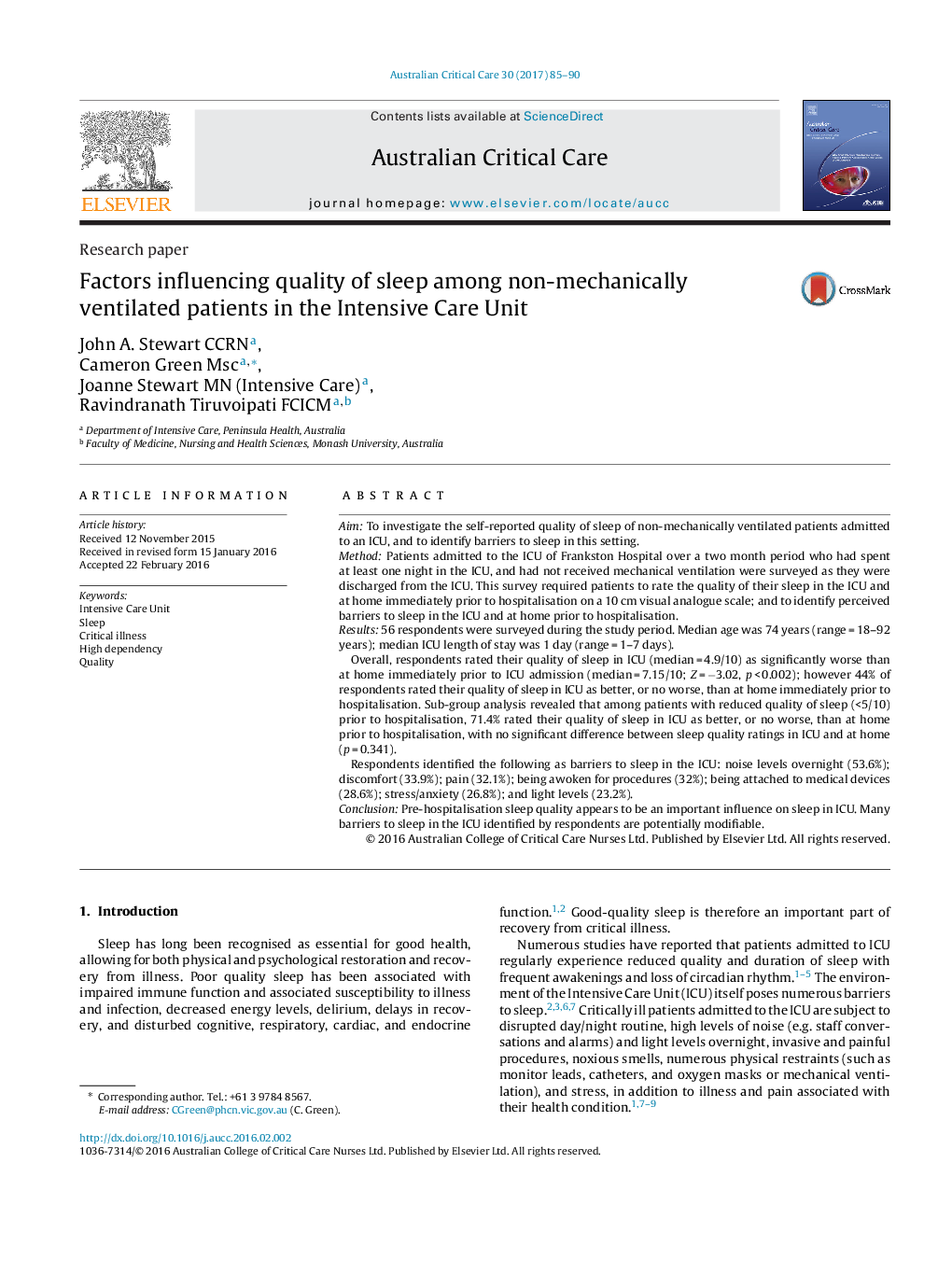| کد مقاله | کد نشریه | سال انتشار | مقاله انگلیسی | نسخه تمام متن |
|---|---|---|---|---|
| 5562865 | 1403442 | 2017 | 6 صفحه PDF | دانلود رایگان |
AimTo investigate the self-reported quality of sleep of non-mechanically ventilated patients admitted to an ICU, and to identify barriers to sleep in this setting.MethodPatients admitted to the ICU of Frankston Hospital over a two month period who had spent at least one night in the ICU, and had not received mechanical ventilation were surveyed as they were discharged from the ICU. This survey required patients to rate the quality of their sleep in the ICU and at home immediately prior to hospitalisation on a 10 cm visual analogue scale; and to identify perceived barriers to sleep in the ICU and at home prior to hospitalisation.Results56 respondents were surveyed during the study period. Median age was 74 years (range = 18-92 years); median ICU length of stay was 1 day (range = 1-7 days).Overall, respondents rated their quality of sleep in ICU (median = 4.9/10) as significantly worse than at home immediately prior to ICU admission (median = 7.15/10; Z = â3.02, p < 0.002); however 44% of respondents rated their quality of sleep in ICU as better, or no worse, than at home immediately prior to hospitalisation. Sub-group analysis revealed that among patients with reduced quality of sleep (<5/10) prior to hospitalisation, 71.4% rated their quality of sleep in ICU as better, or no worse, than at home prior to hospitalisation, with no significant difference between sleep quality ratings in ICU and at home (p = 0.341).Respondents identified the following as barriers to sleep in the ICU: noise levels overnight (53.6%); discomfort (33.9%); pain (32.1%); being awoken for procedures (32%); being attached to medical devices (28.6%); stress/anxiety (26.8%); and light levels (23.2%).ConclusionPre-hospitalisation sleep quality appears to be an important influence on sleep in ICU. Many barriers to sleep in the ICU identified by respondents are potentially modifiable.
Journal: Australian Critical Care - Volume 30, Issue 2, March 2017, Pages 85-90
